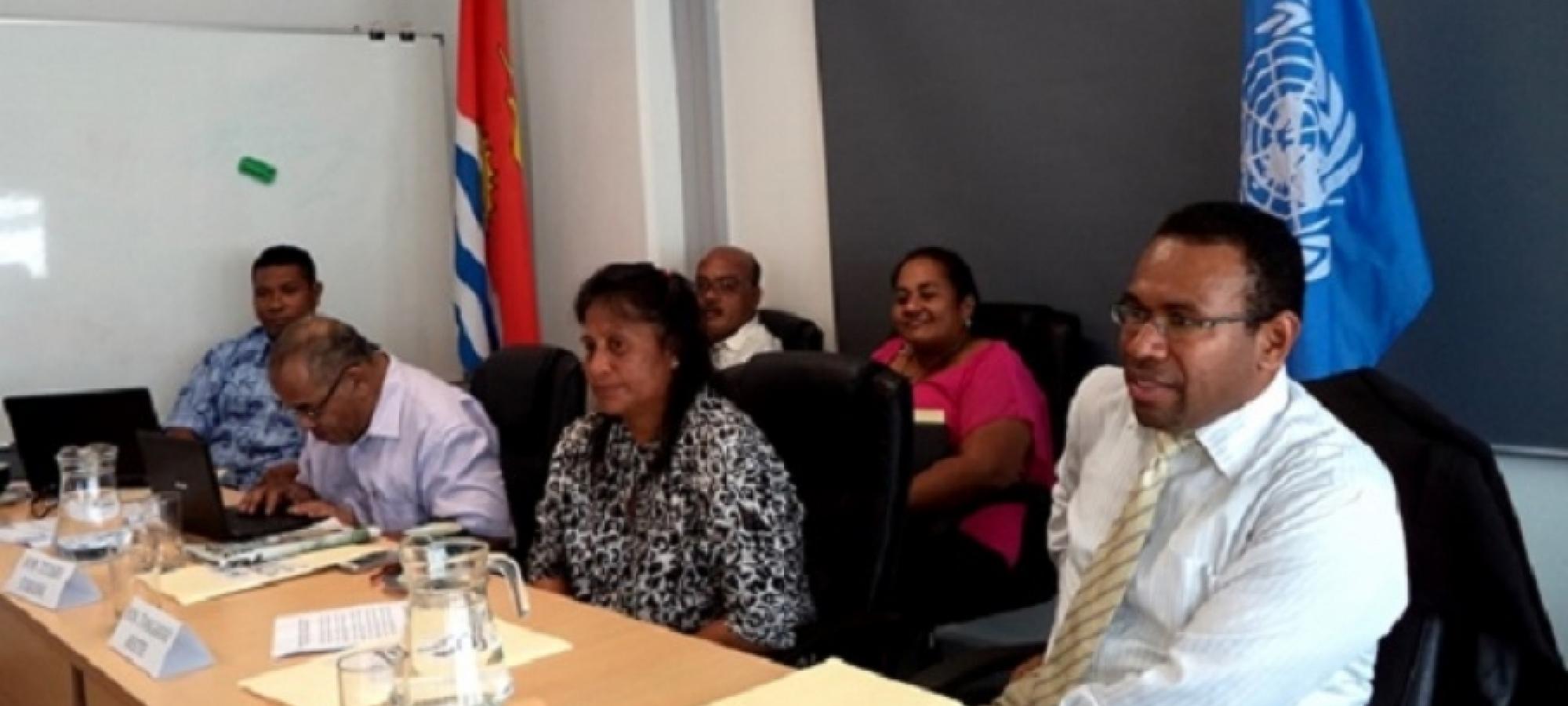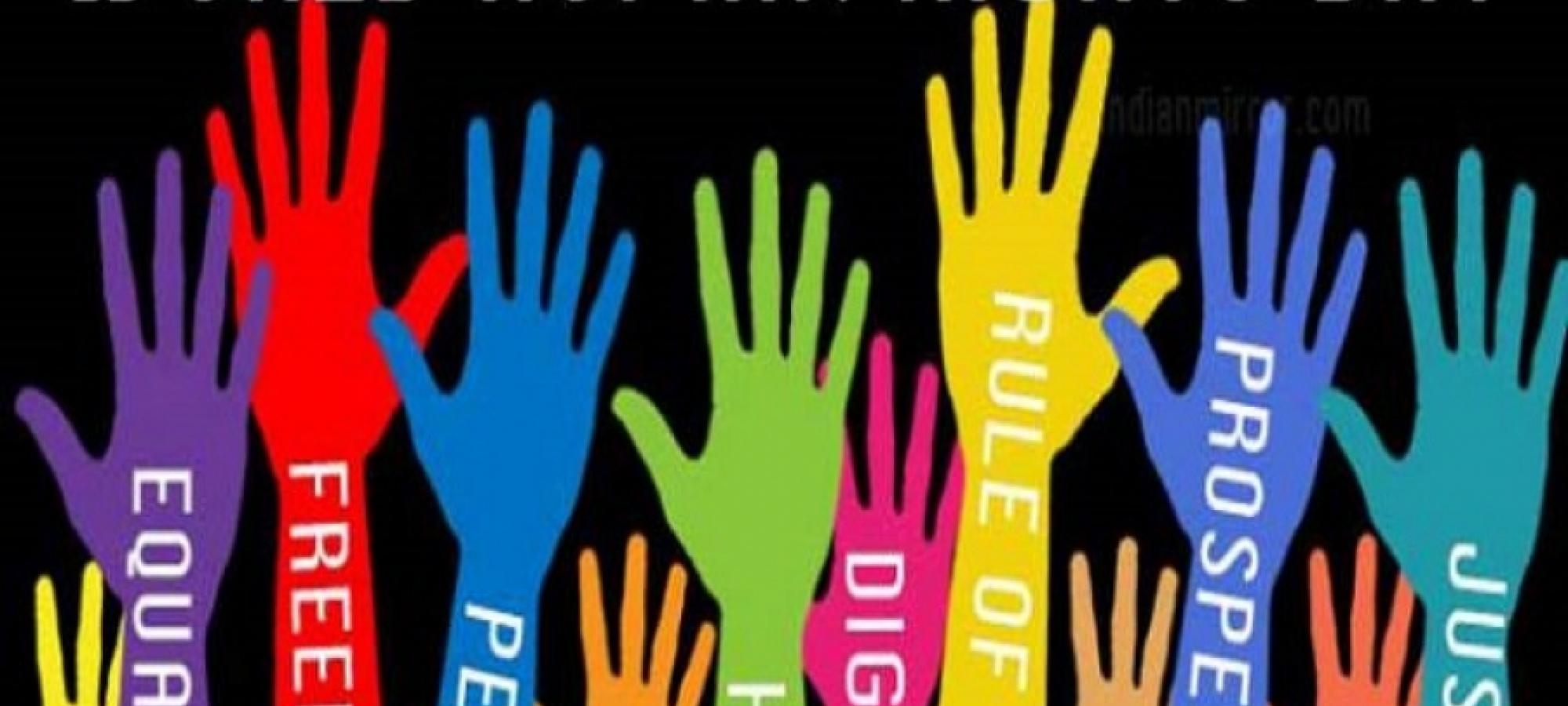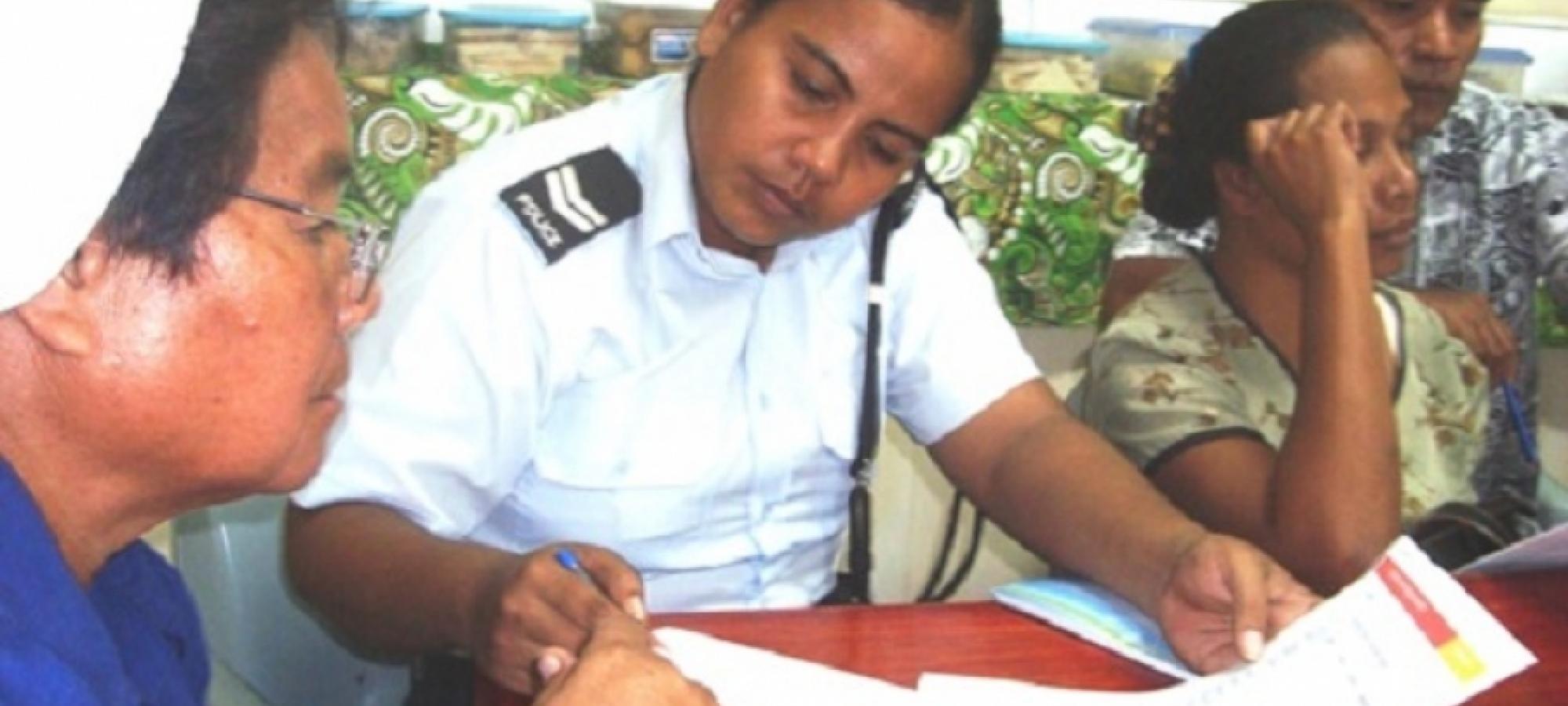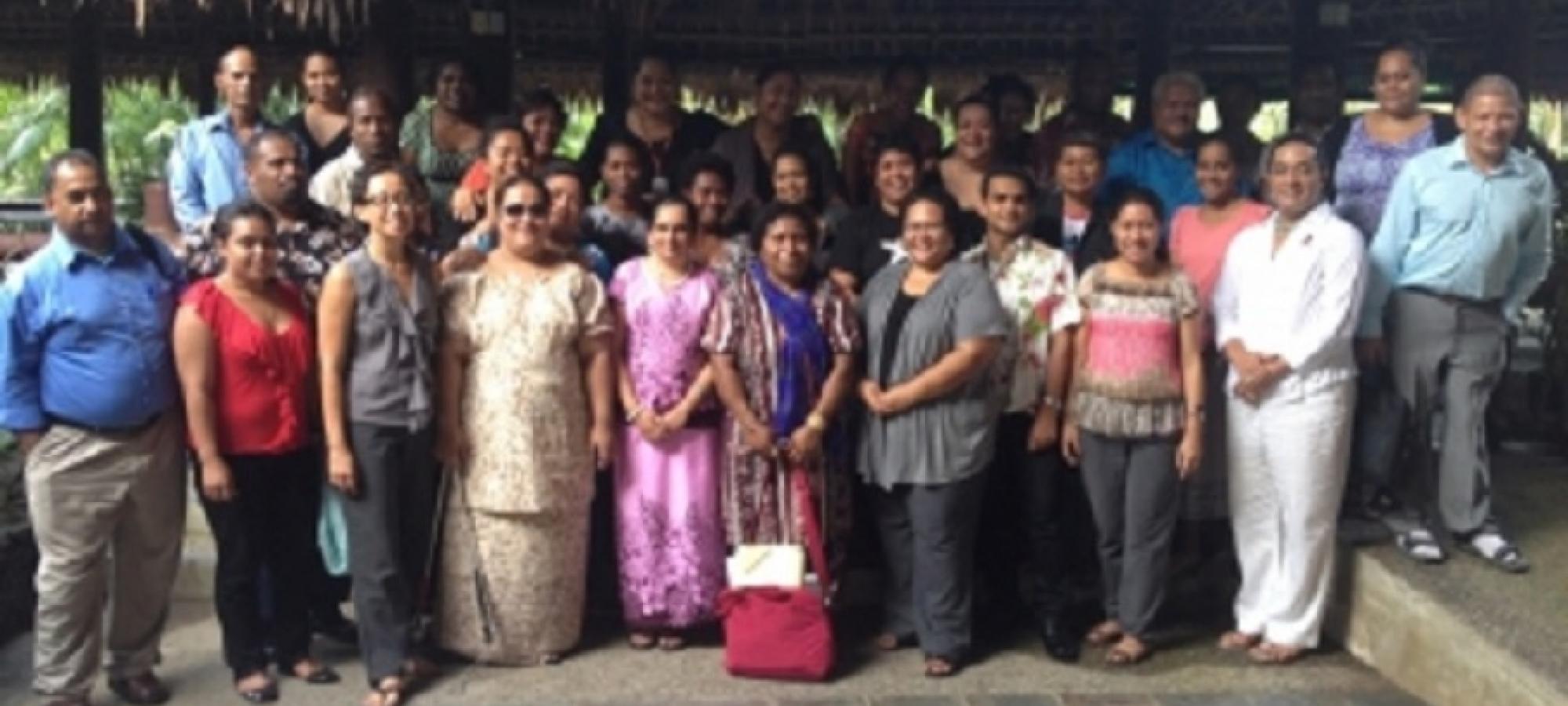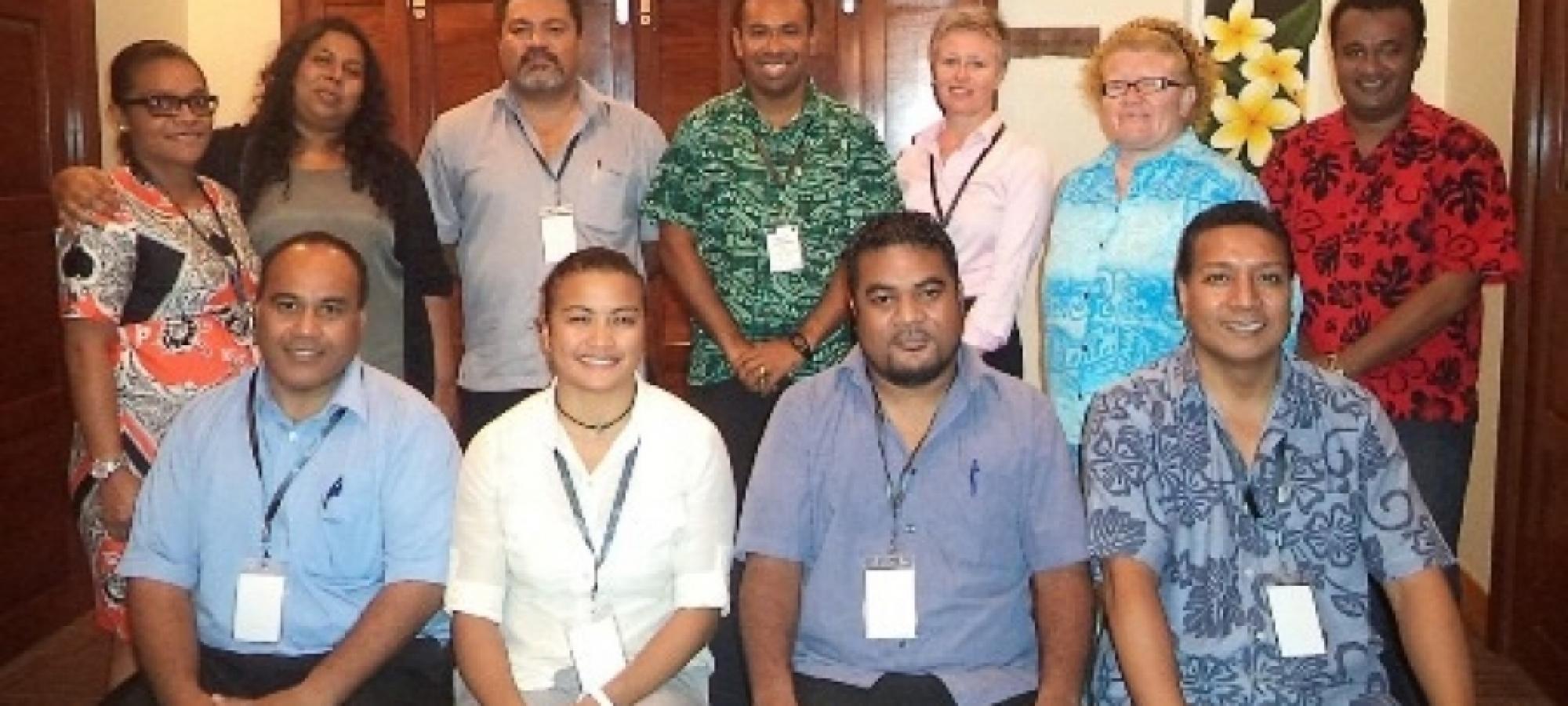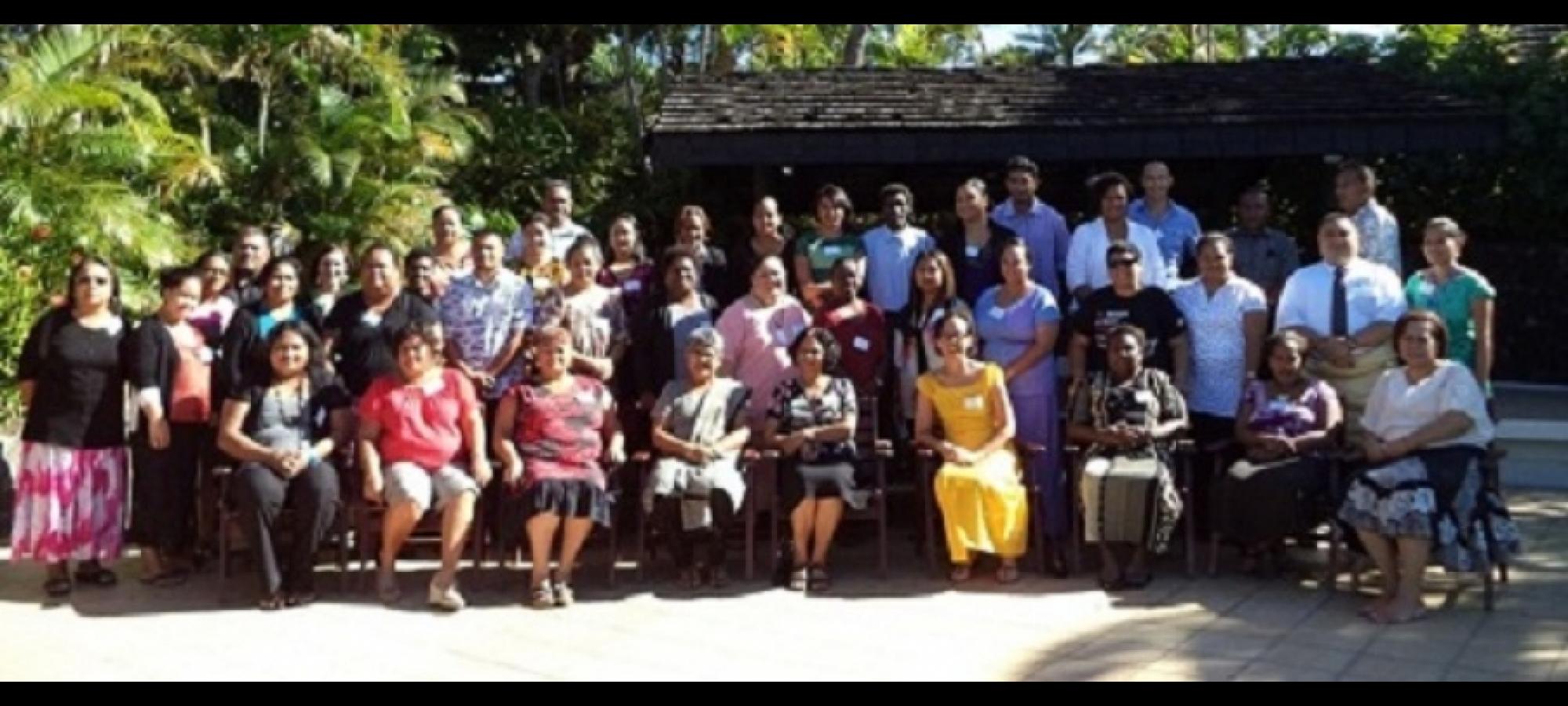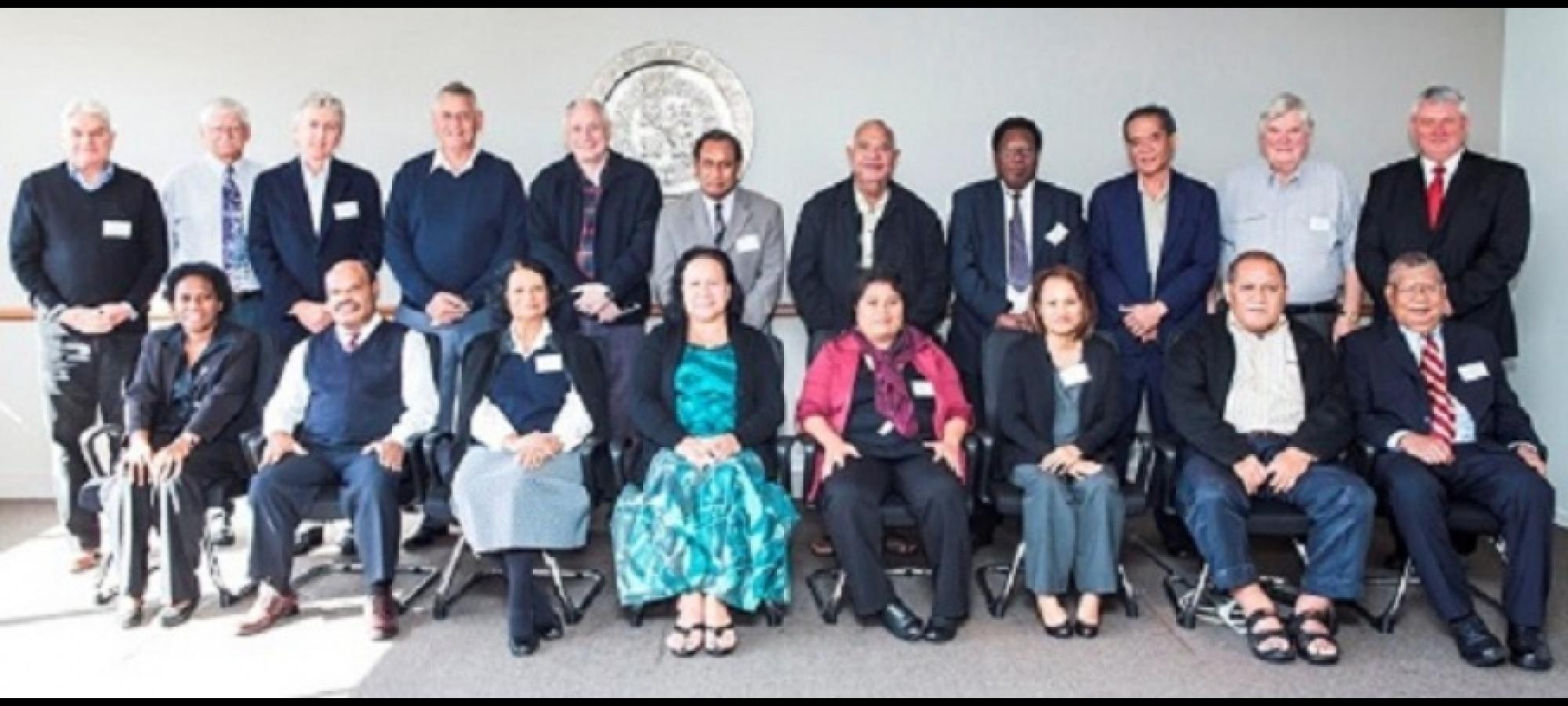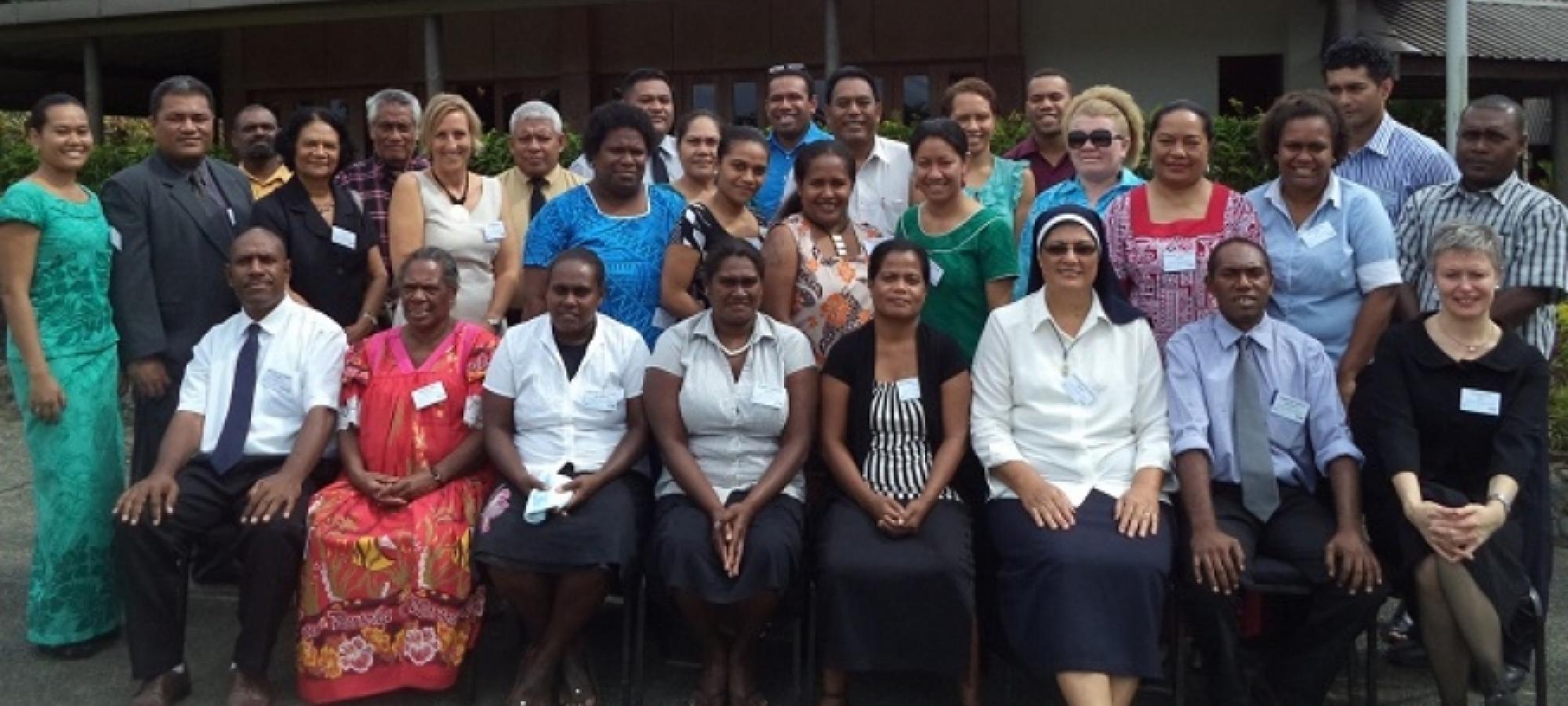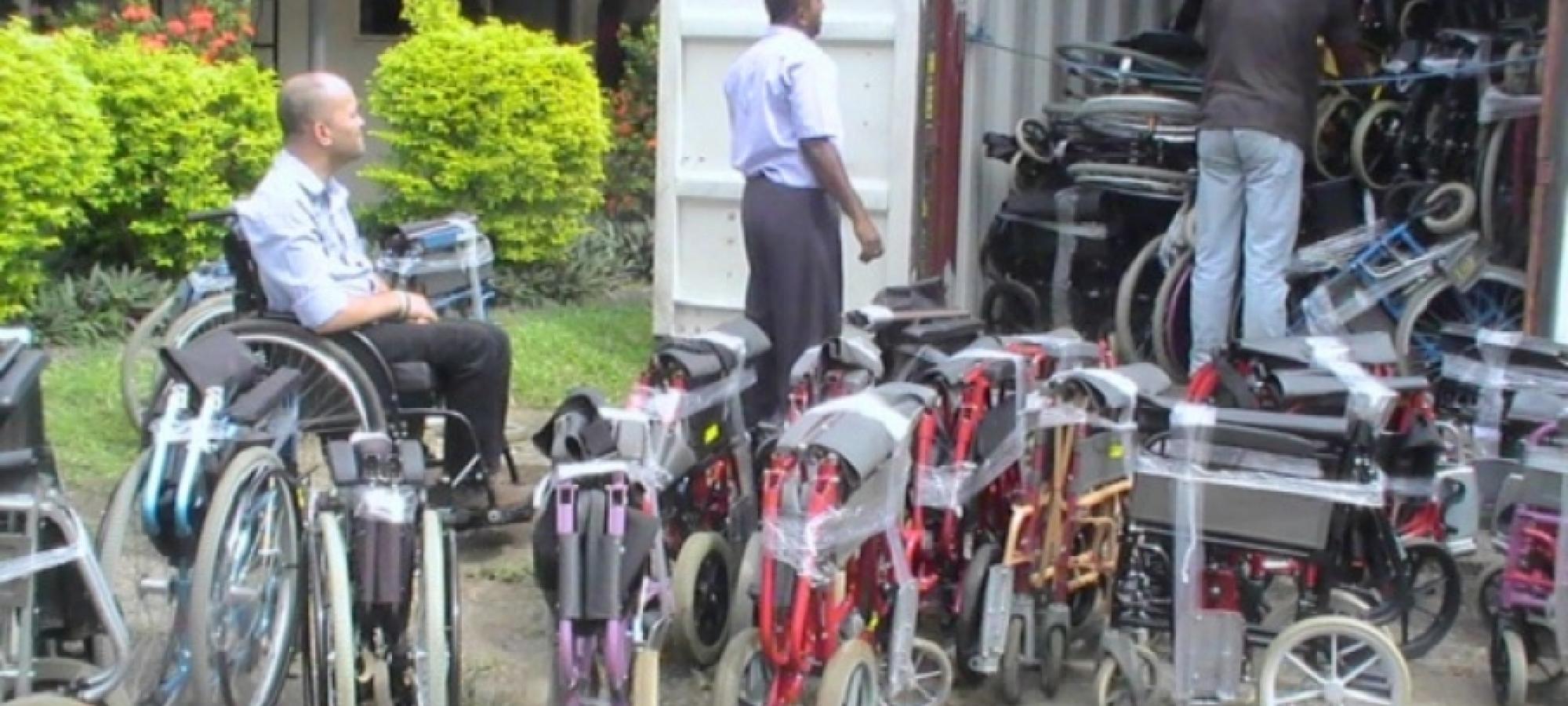Kiribati Parliament endorses Pacific declaration on human rights for good governance

Kiribati became the first country in the region to endorse the Pacific Members of Parliament Denarau 2015 Declaration on Human Rights and Good Governance at a recent parliament sitting at the end of May.
“This Honourable Maneaba ni Maungatabu [Parliament] acknowledges the Declaration released at the Pacific Members of Parliament consultation in January 2015 in Denarau, Fiji and pledges full support to the Declaration and commits to uphold and fulfil the protection of the human rights of her citizens and the conduct of Good Governance,” the motion stated.
Speaking in parliament in support of the declaration, Honourable Vice President of Kiribati, Ms Teimwa Onorio challenged all members of Parliament to make a commitment to the declaration and human rights as a whole.
Honourable Ms Onorio also acknowledged the many contributions of various partners in advancing human rights in Kiribati with mention of the support by the Regional Rights Resource Team of the Secretariat of the Pacific Community (SPC).
In January 2015, members of parliament (MPs) from 11 countries across the Pacific region affirmed their commitment to good governance and human rights with the signing of a formal declaration.
The MPs echoed the Pacific leaders’ vision in the new Framework for Pacific Regionalism (2014), calling for a Pacific region ‘known for its quality of governance and respect for human rights’ in a statement called the 2015 Denarau Declaration on Human Rights and Good Governance.
The MPs noted the progressive steps taken by Pacific governments in the ratification of core human rights treaties, including the Convention on the Elimination of all Forms of Discrimination Against Women (CEDAW), the Convention on the Rights of the Child (CRC) and the Convention on the Rights of Persons with Disabilities (CRPD). SPC RRRT has planned this year to carry out a number of National MPs Consultations as follow up to the Regional Consultation and at the request of Governments to progress human rights, good governance and sustainable development.
SPC RRRT is funded by the Australian Government, the European Union and the Kingdom of the Netherlands. Visit our website to download a copy of the declaration.
Media contact
For further information, please contact Jilda Shem, SPC RRRT’s Communication Officer on phone +679 330 5994 or email [email protected].
- Read more about Kiribati Parliament endorses Pacific declaration on human rights for good governance




